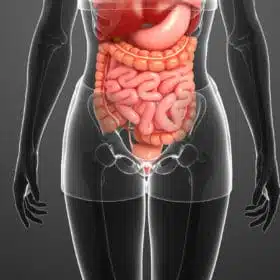If you regularly use the Pill you have probably wondered at one time or another what the constant intake of synthetic hormone preparations is actually doing to your body. In Germany alone, around seven million women currently use the pill for contraception.
However, in recent years in particular, studies have revealed more and more side effects that can be attributed to certain products. These include cardiovascular diseases, depression and thrombosis, the development of which can be promoted in some people by taking the pill.
Let's play a little "what if" game and see what might happen if you were to stop taking the pill overnight.
6 things that can happen when you stop taking the pill
As many women realize that taking the pill has some side effects, the question often arises as to what will happen when they stop taking it. Nevertheless, most women are reluctant to stop taking the pill, especially as they have benefited from its positive side effects. Or would you risk jeopardizing your clear skin, your full head of hair or your regular and uncomplicated periods without need? So which concerns are justified and which belong in the realm of legend?
1 - You get blemished skin and hair loss
One of the most pleasant side effects that the pill has on your body is that it ensures clear skin. This is due to the suppression of testosterone secretion, which causes oestrogen levels to rise sharply, which in turn is good for your skin and full hair. If you stop taking the pill, the oestrogen level drops, which can lead to increased hair loss after around three months. The reason for this phenomenon is the fact that the high oestrogen level keeps an above-average amount of hair in the growth phase. As a result, more hair falls out after the sudden cessation of oestrogen intake. However, the good news is that this hair loss is only of a short-term nature and reduces to a normal level within 1-2 months.
2 - You lose weight
You have probably noticed that you have put on some weight by taking the pill. Exactly how much depends on the type of pill. However, the extra weight is not body fat, but water. As soon as you stop taking the pill, the water retention caused by the oestrogen disappears all by itself. And that's an average of around 1-2 kilograms. Lose weight without doing anything about it? If that's not a good prospect.
3 - Your period becomes more irregular
One consequence of stopping the pill is that periods become more irregular, as the menstrual cycle has to get back on track due to the hormonal changes. However, these irregularities only affect a third of all women who stop taking the pill. The reason for the irregularity is the fact that the hormones absorbed via the pill do not disappear directly from the body. This is because they accumulate in the fat cells and are therefore only broken down slowly.
4 - You can get pregnant
Ok, of course that's extremely banal. But you won't believe it, there are actually women who, after years of taking the pill, first have to realize that they can get pregnant. The time immediately after stopping the pill is particularly dangerous, but this is mainly due to the fact that people often forget to use other forms of contraception.
5 - You become more emotional
The effects of stopping the pill, which will be felt first and foremost by those around you, are mood swings and increasing emotionality. But why is that? This is of course also due to the fact that the most common combined pills virtually paralyze the oestrogen-progestogen cycle, which keeps hormone levels constant. However, the increasing emotionality does not necessarily have to be of a negative nature, as you also experience positive emotions much more intensely as the hormonal cycle returns to normal.
6 - You feel like having sex again
Probably the most positive side effect associated with stopping the pill is the increased libido. In plain language, the desire for sex, which has cooled somewhat in many women, returns due to the normalization of hormone levels.
Should I really stop taking the pill?
After considering the possible consequences of stopping the pill, it is up to you to decide whether you want to stop taking it or not. However, be aware that this is not a decision that should be made between breakfast and lunch, especially as this decision means a major hormonal change for your body. But what's the best way to go about it?
How to stop taking the pill in 5 steps
1 - See your doctor first
Before you go off the pill head over heels, it is important that you talk to your gynecologist, who will help you to find a possible alternative to taking the previous pill. This is particularly important as many young girls are prescribed the pill for a specific medical reason, such as particularly heavy or irregular bleeding.
2 - Look for an alternative contraceptive
If you want to stop taking the pill and do not yet want to have children, it is imperative that you look for another contraceptive method. You should also take time to learn how to use hormone-free contraceptive methods, because any form of contraception is only safe if you can use it safely.
3 - Stop taking the pill
As soon as all medical and contraceptive issues have been resolved, you can stop taking the pill. All you need to do is simply stop taking the pills. However, it is important that you time it so that you take the pill until the end of each cycle. Otherwise, the hormonal imbalance can lead to bleeding in some cases.
4 - Make sure your body gets some rest
The first time after stopping the pill is often like a rollercoaster ride that takes you back to puberty, at least it feels like it. Unfortunately, it also comes with everything that goes with it, such as pimples, cramps, headaches and mood swings. However, which symptoms actually occur is highly individual, especially as you may not notice any major change at all. So treat yourself to some rest in the first few days after weaning and relax in the bathtub or with a good book on the couch.
5 - Observe the behavior of your body
As it takes a while for your body to return to normal after you stop taking the pill, it is important that you observe your body's behavior and note any abnormalities. If, for example, you are still not getting your period regularly after more than three months, it makes sense to visit your gynaecologist to have your hormone levels checked.








